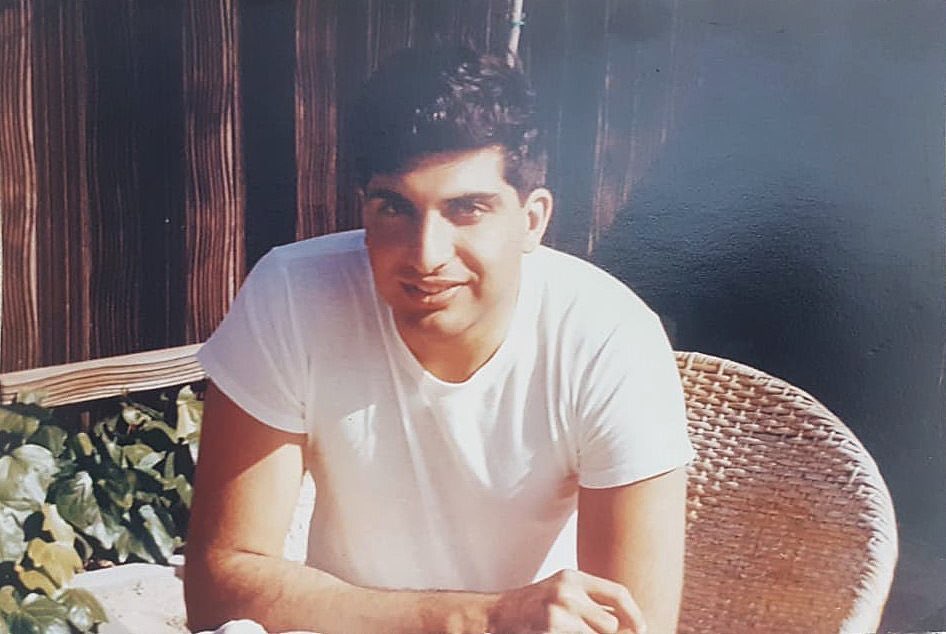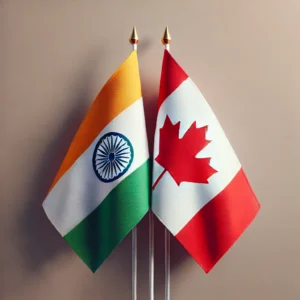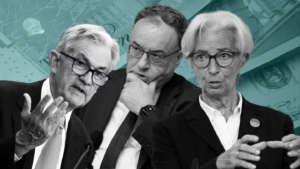Sir Ratan Tata is one of the most revered figures in modern Indian business, known not just for his acumen but also for his humility, philanthropy, and visionary leadership. His contribution to India’s industrial landscape has left an indelible mark. But what makes Ratan Tata truly extraordinary is not just his business success, but the stories of his personal integrity, humility, and deep-rooted sense of responsibility towards society.
Early Life and Background
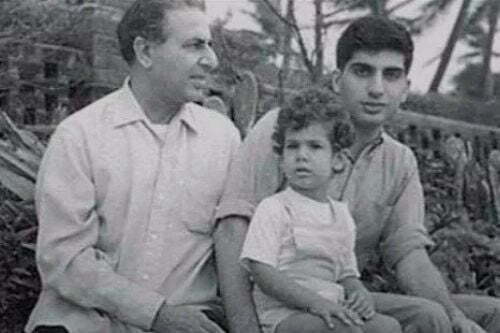
Born on December 28, 1937, Ratan Tata’s life had its share of challenges. His parents divorced when he was just ten years old, and he spent much of his childhood with his grandmother, Navajbai Tata. Despite personal hardships, Ratan Tata focused on his education, attending prestigious institutions like Cornell University and Harvard Business School. His career began in 1962 when he joined Tata Steel, where he worked alongside blue-collar workers on the shop floor, gaining a deep understanding of the workforce and the business.
The Rise of Tata Group Under His Leadership
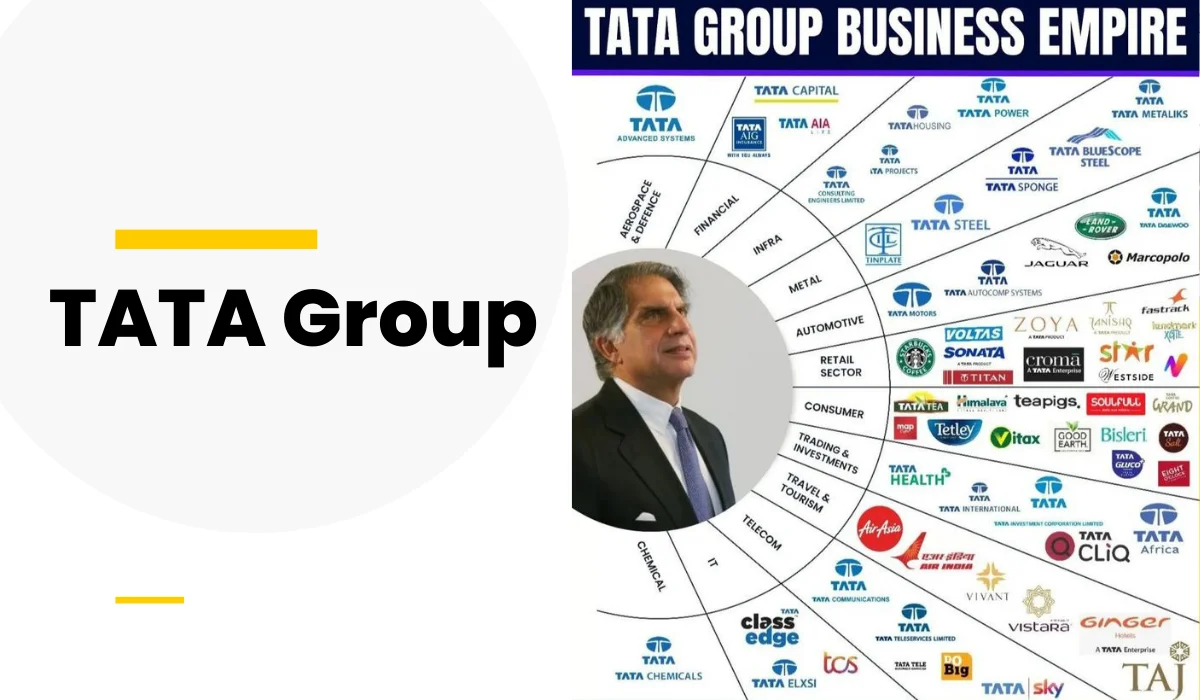
Ratan Tata took over as the chairman of Tata Group in 1991, and under his leadership, the group’s revenues grew 40-fold. He successfully transformed Tata into a global business conglomerate, with its operations spanning across 100 countries. He was instrumental in some landmark deals, including the acquisition of Tetley, Jaguar Land Rover, and Corus, making Tata a global name.
One of the defining moments of his leadership was the launch of Tata Nano, aimed at providing an affordable car for the masses. Though it didn’t succeed as expected, it remains a testament to Tata’s commitment to innovation and social responsibility.
Humility and Leadership in Crisis
One of the many stories that highlight Ratan Tata’s humility is from his time at Tata Steel. Once, while traveling from Nashik, his car suffered a puncture. Instead of waiting for help, Tata got down, rolled up his sleeves, and helped fix the tire, stating, “If I can save some time by helping him, I can get to the meeting earlier.” This anecdote reflects his grounded nature, always willing to lend a hand, no matter the task.
Perhaps the most telling episode of his leadership was during the tragic 26/11 Mumbai attacks, when the Taj Mahal Palace Hotel, owned by Tata, was targeted. Ratan Tata personally oversaw the relief efforts, ensuring that the families of those affected, including hotel staff and even street vendors outside the hotel, were taken care of. Financial aid was given, along with lifelong medical support and education for children of the victims. His commitment extended beyond his employees, covering bystanders affected by the attack. This swift and compassionate response earned him admiration globally.
A Man of Values and Integrity
Ratan Tata’s life is a testament to living by values. When Pakistan placed an order for Tata Sumo vehicles post the Kargil War, Tata refused, citing that he could not do business with a country that had caused harm to India. This incident underscores his patriotism and the value he places on national interest above profits.
In another instance, when a Japanese company expressed interest in partnering with Tata, they were keen to visit his office to finalize the deal. Tata, being aware of the political sensitivities, refused to meet them after discovering their connections with entities he didn’t align with ethically. His moral compass never wavered, regardless of the business opportunities at hand.
Philanthropy and the Legacy of Giving
Ratan Tata is not just known for his business achievements but also for his unparalleled philanthropy. Through the Tata Trusts, over 66% of the profits generated by the Tata Group are donated to charity, supporting initiatives in healthcare, education, rural development, and more. One of his significant contributions was to the field of education, where he funded scholarships for Indian students to study abroad. He also donated millions to institutions like Cornell University and IIT Bombay for research and development projects.
Tata’s contributions during the COVID-19 pandemic were equally noteworthy, with substantial donations made to support healthcare systems and provide relief to affected communities. His charitable vision has always been centered on empowering individuals and communities rather than merely providing aid.
Unwavering Commitment to Innovation
Throughout his career, Tata has been committed to pushing boundaries in innovation. He encouraged the development of Tata Consultancy Services (TCS) and helped turn it into one of the world’s leading IT services companies. His leadership extended to ventures in the fields of automotive, steel, and even biotechnology. The Tata Nano, though a commercial failure, stands as a symbol of his innovative spirit, showing his desire to solve problems for the common man.
A Life of Simplicity and Grace
Despite his stature, Ratan Tata has always led a simple life. He prefers to travel economy class, drive his own Tata Indigo, and live in a modest apartment in Mumbai. His humility has endeared him to millions of people around the world. Even on social media, Tata has been gracious. Once, a girl innocuously referred to him as “Chhotu” (a colloquial term for someone small or young) on Instagram. Instead of taking offense, he responded kindly, showcasing his grace and ability to connect with people of all generations.
Conclusion
Sir Ratan Tata is not just a businessman; he is an icon of integrity, humility, and service. His life stories go beyond boardrooms and profits, touching the lives of millions through his generosity, compassion, and vision. If there is one name that truly symbolizes India’s spirit of giving and innovation, it is Ratan Tata. His legacy will continue to inspire generations to come, not just in business, but in humanity.
FAQ
Who is Sir Ratan Tata?
Sir Ratan Tata is an Indian industrialist, philanthropist, and former chairman of Tata Group, one of India’s largest and most respected conglomerates.
What is Ratan Tata known for?
Ratan Tata is known for transforming the Tata Group into a global business entity, his philanthropy, and his humble leadership style. He played a key role in acquisitions like Tetley, Jaguar Land Rover, and Corus.
What major companies did Ratan Tata help acquire for Tata Group?
Under Ratan Tata’s leadership, Tata Group acquired several global companies, including Tetley Tea, Jaguar Land Rover, and Corus Steel, making Tata a global brand.
Why is Ratan Tata considered a philanthropist?
Ratan Tata is a noted philanthropist because over 66% of the profits from Tata companies are directed to charitable trusts, which support education, healthcare, rural development, and more.
How did Ratan Tata respond during the 26/11 Mumbai attacks?
During the 26/11 attacks, Ratan Tata personally ensured that the victims, including hotel staff and bystanders, were supported. He provided compensation, medical aid, and lifelong support to those affected.
Did Ratan Tata ever marry?
No, Ratan Tata never married. He came close to marriage a few times but chose to remain single, focusing on his work and philanthropic efforts instead.
What is Tata Nano, and why was it significant?
The Tata Nano was an ambitious project by Ratan Tata to create the world’s most affordable car. Though commercially unsuccessful, it was a symbol of Tata’s commitment to innovation for the masses.
How much of Tata Group’s profits go to charity?
Approximately 66% of the Tata Group’s profits are donated to various charitable causes through the Tata Trusts, making it one of the largest philanthropic organizations in India.
What are some key values Ratan Tata believes in?
Ratan Tata is a strong believer in ethics, humility, innovation, and social responsibility. His leadership reflects these values through his business and philanthropic efforts.
Which prestigious awards has Ratan Tata received?
Ratan Tata has received numerous awards, including the Padma Bhushan in 2000 and the Padma Vibhushan in 2008, two of India’s highest civilian honors.
What role did Ratan Tata play in Tata Steel?
Ratan Tata started his career at Tata Steel, working on the shop floor alongside workers, gaining valuable insights into the business and workforce operations.
Why is Ratan Tata considered a humble leader?
Ratan Tata is considered humble due to his down-to-earth approach, willingness to work alongside employees, and simple lifestyle despite his significant wealth and stature.
How did Ratan Tata handle international acquisitions?
Ratan Tata successfully led Tata Group’s international acquisitions, including Tetley Tea, Corus Steel, and Jaguar Land Rover, transforming Tata into a global player.
What is the Tata Group’s impact on India’s economy?
Tata Group significantly contributes to India’s economy, contributing around 4% to the country’s GDP, with extensive operations across sectors like steel, motors, IT, and consumer products.
How did Ratan Tata inspire his employees?
Ratan Tata inspired his employees through his ethical leadership, personal involvement in their welfare, and by setting an example of humility and dedication to the company’s mission.
What was Ratan Tata’s role in the acquisition of Jaguar Land Rover?
Ratan Tata led the acquisition of Jaguar Land Rover in 2008, turning the struggling brands into profitable entities under Tata’s management, significantly boosting Tata Motors’ global reputation.
What is Ratan Tata’s view on failure?
Ratan Tata views failure as a stepping stone to success. He believes in learning from failures and encourages innovation and experimentation within the Tata Group.
How did Ratan Tata handle the Nano car’s failure?
Although the Tata Nano did not meet commercial expectations, Ratan Tata handled its failure with grace, stating that it was an important learning experience for the company.
What is Ratan Tata’s stance on ethics in business?
Ratan Tata is a staunch advocate of ethics in business. He believes that success should never come at the cost of integrity, and his leadership reflects these principles.
What was Ratan Tata’s education background?
Ratan Tata studied at Cornell University for architecture and structural engineering and attended Harvard Business School’s Advanced Management Program.
How does Tata Group handle corporate social responsibility?
Tata Group is committed to corporate social responsibility (CSR) by contributing a significant portion of its profits to causes like education, healthcare, rural development, and environmental sustainability.
What is the role of Tata Trusts?
Tata Trusts play a vital role in distributing the profits generated by Tata companies to charitable initiatives, focusing on sectors such as education, healthcare, nutrition, and rural development.
What was Ratan Tata’s role in Tata Motors?
Ratan Tata was instrumental in modernizing Tata Motors, overseeing its international expansion, including the acquisition of Jaguar Land Rover, and developing innovative vehicles like the Tata Nano.
How does Ratan Tata inspire young entrepreneurs?
Ratan Tata inspires young entrepreneurs by emphasizing innovation, ethical leadership, and resilience in the face of challenges. His own journey serves as a blueprint for aspiring leaders.
Who is Sir Ratan Tata?
Sir Ratan Tata is an Indian industrialist, philanthropist, and former chairman of Tata Group, one of India’s largest and most respected conglomerates.
What is Ratan Tata known for?
Ratan Tata is known for transforming Tata Group into a global business entity, his philanthropy, and his humble leadership style. He played a key role in acquisitions like Tetley, Jaguar Land Rover, and Corus.
Which major companies did Ratan Tata help acquire for Tata Group?
Under Ratan Tata’s leadership, Tata Group acquired several global companies, including Tetley Tea, Jaguar Land Rover, and Corus Steel, making Tata a global brand.
Why is Ratan Tata considered a philanthropist?
Ratan Tata is a noted philanthropist because over 66% of the profits from Tata companies are directed to charitable trusts, which support education, healthcare, rural development, and more.
How did Ratan Tata respond during the 26/11 Mumbai attacks?
During the 26/11 attacks, Ratan Tata personally ensured that the victims, including hotel staff and bystanders, were supported. He provided compensation, medical aid, and lifelong support to those affected.
Did Ratan Tata ever marry?
No, Ratan Tata never married. He came close to marriage a few times but chose to remain single, focusing on his work and philanthropic efforts instead.
What is Tata Nano, and why was it significant?
The Tata Nano was an ambitious project by Ratan Tata to create the world’s most affordable car. Though commercially unsuccessful, it was a symbol of Tata’s commitment to innovation for the masses.
How much of Tata Group’s profits go to charity?
Approximately 66% of the Tata Group’s profits are donated to various charitable causes through the Tata Trusts, making it one of the largest philanthropic organizations in India.
What are some key values Ratan Tata believes in?
Ratan Tata is a strong believer in ethics, humility, innovation, and social responsibility. His leadership reflects these values through his business and philanthropic efforts.
Which prestigious awards has Ratan Tata received?
Ratan Tata has received numerous awards, including the Padma Bhushan in 2000 and the Padma Vibhushan in 2008, two of India’s highest civilian honors.
What role did Ratan Tata play in Tata Steel?
Ratan Tata started his career at Tata Steel, working on the shop floor alongside workers, gaining valuable insights into the business and workforce operations.
Why is Ratan Tata considered a humble leader?
Ratan Tata is considered humble due to his down-to-earth approach, willingness to work alongside employees, and simple lifestyle despite his significant wealth and stature.
How did Ratan Tata handle international acquisitions?
Ratan Tata successfully led Tata Group’s international acquisitions, including Tetley Tea, Corus Steel, and Jaguar Land Rover, transforming Tata into a global player.
What is the Tata Group’s impact on India’s economy?
Tata Group significantly contributes to India’s economy, contributing around 4% to the country’s GDP, with extensive operations across sectors like steel, motors, IT, and consumer products.
How did Ratan Tata inspire his employees?
Ratan Tata inspired his employees through his ethical leadership, personal involvement in their welfare, and by setting an example of humility and dedication to the company’s mission.
What was Ratan Tata’s role in the acquisition of Jaguar Land Rover?
Ratan Tata led the acquisition of Jaguar Land Rover in 2008, turning the struggling brands into profitable entities under Tata’s management, significantly boosting Tata Motors’ global reputation.
What is Ratan Tata’s view on failure?
Ratan Tata views failure as a stepping stone to success. He believes in learning from failures and encourages innovation and experimentation within the Tata Group.
How did Ratan Tata handle the Nano car’s failureHere’s the continuation of the FAQ section in Microdata format:
“`html
How did Ratan Tata handle the Nano car’s failure?
Despite the commercial failure of the Nano, Ratan Tata remained proud of the innovation. He accepted the market challenges and moved forward, always aiming to improve future projects.
What is Ratan Tata’s relationship with the Tata Trusts?
Ratan Tata is closely associated with Tata Trusts, one of India’s largest philanthropic organizations, which supports causes related to education, healthcare, and rural development.
What is Ratan Tata’s involvement in startup investments?
Ratan Tata is actively involved in investing in startups. He has invested in companies like Ola, Paytm, Snapdeal, and Urban Ladder, promoting innovation in India’s startup ecosystem.
How did Ratan Tata retire from Tata Group?
Ratan Tata retired as the chairman of Tata Group in 2012, after serving for over two decades. His successor was Cyrus Mistry, though Tata later returned briefly during a leadership transition.
How does Ratan Tata view leadership?
Ratan Tata views leadership as a responsibility to act with integrity, maintain humility, and always focus on the welfare of employees, customers, and society at large.
What is Ratan Tata’s legacy at Tata Group?
Ratan Tata’s legacy is his transformation of Tata Group into a global business powerhouse, with a focus on ethical practices, philanthropy, and social responsibility.
What was Ratan Tata’s first role in Tata Group?
Ratan Tata’s first role in the Tata Group was in 1962, where he worked on the shop floor of Tata Steel, gaining valuable hands-on experience in the industrial operations of the company.
How did Ratan Tata contribute to Tata Motors?
Ratan Tata played a pivotal role in Tata Motors by spearheading the creation of the Tata Indica, the company’s first passenger car, and acquiring Jaguar Land Rover, boosting its global presence.
What is Ratan Tata’s role in India’s industrial development?
Ratan Tata has been instrumental in India’s industrial development, expanding Tata Group’s influence across industries like steel, automobiles, IT, and telecommunications, contributing significantly to India’s GDP.
What is the Tata Trusts’ role in education?
Tata Trusts support education by providing scholarships, funding research, and contributing to building educational institutions that promote learning and development across India.
What makes Ratan Tata different from other industrialists?
Ratan Tata stands out from other industrialists due to his focus on ethics, humility, and social welfare, coupled with his commitment to philanthropy and nation-building.
How did Ratan Tata influence India’s startup ecosystem?
Ratan Tata influenced India’s startup ecosystem by investing in early-stage companies, providing mentorship, and fostering a culture of innovation, helping new businesses thrive.
What challenges did Ratan Tata face during his leadership?
Ratan Tata faced challenges like global competition, fluctuating market conditions, and the Nano project’s failure, yet he always approached these challenges with resilience and a focus on learning.
What initiatives did Ratan Tata support in healthcare?
Ratan Tata, through Tata Trusts, has supported healthcare initiatives such as funding hospitals, promoting cancer research, and providing medical aid to underserved communities in India.
